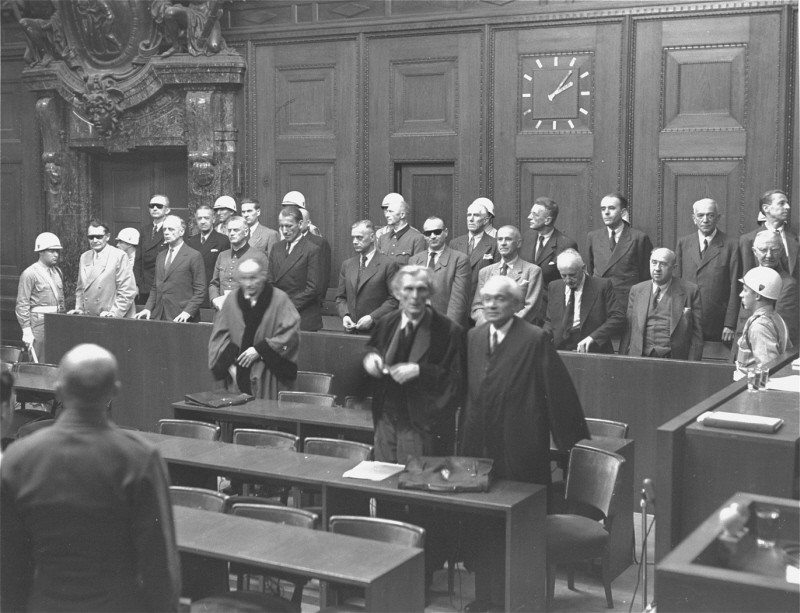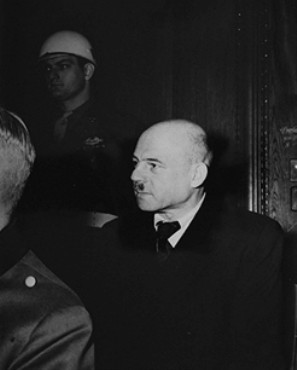
Fritz Sauckel
In the immediate aftermath of the Holocaust, the world was faced with a challenge—how to hold individually accountable those German leaders who were responsible for the commission of monstrous crimes against humanity and international peace. The International Military Tribunal (IMT) held in Nuremberg, Germany, attempted to face this immense challenge. On October 18, 1945, the chief prosecutors of the IMT brought charges against 24 leading German officials, among them Fritz Sauckel.
Fritz Sauckel (1894–1946) was Plenipotentiary General for the Deployment of Labor. Sauckel was responsible for providing forced laborers to meet Germany's increasing war production needs. Under his authority, the Germans deported millions of forced laborers from the occupied territories to Germany.
He was found guilty on counts three and four (war crimes and crimes against humanity) at the International Military Tribunal in Nuremberg. He was sentenced to death. Sauckel was hanged on October 16, 1946.

Critical Thinking Questions
- Beyond the verdicts, what impact did the trials have?
- Besides military participants, what other professionals were charged with crimes in the wake of the Holocaust?
- How have some professional codes of conduct changed after the Holocaust?

